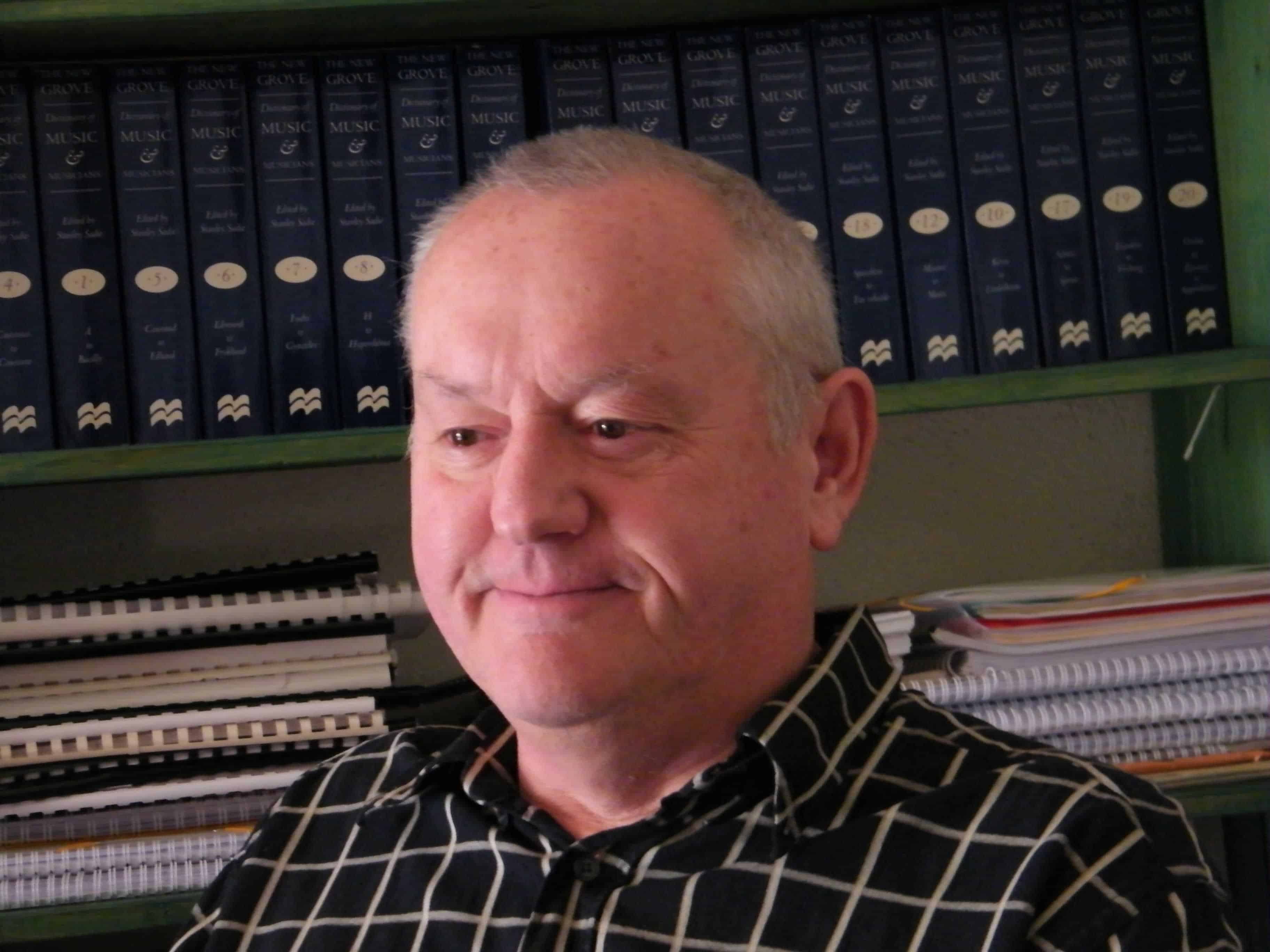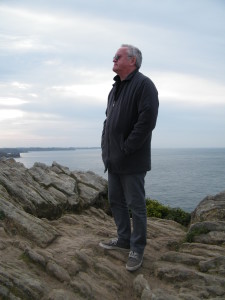English composer Steve Elcock describes his emergence from total obscurity
At the age of seventeen, I sat the entrance examination to go to Oxford to read music. The written papers had gone fairly well, I thought, but the oral part, which necessitated travelling to Oxford, had been a disaster. In a room full of twenty or thirty other hopefuls, we were played a short piece on the piano and asked to take it down in dictation. If it had been in the Baroque or Classical style, this would have been hard enough, but it sounded post-Schoenbergian to my ears. I simply didn’t have a clue. I went away certain of my failure and resigned to not studying music at Oxford. When, a few weeks later, the expected letter confirming my rejection turned out instead to be one informing me that they were offering me a place, both my surprise and satisfaction were enormous.
People told me that I had it made. What they weren’t to know was that less than three weeks into the first term I would be back home, near-suicidal and carrying the seeds of a life-long sense of my inferiority as a musician and inadequacy as a human being.
Picking up the pieces took time (a lot of them are still down there somewhere), but a year later I felt able to embark on a Bachelor of Education degree at a local university. As part of this course, I had the opportunity to spend a year in France, which I took, still with fears that homesickness might get the better of me. But I enjoyed the experience so much, in addition to meeting my future wife there, that I resolved to come back to live in France once I had finished my studies. This decision was facilitated by the fact that teaching practice had shown me that I didn’t want to teach in schools.
I had been trying to compose since the age of about fifteen, but nothing came of these early attempts. It wasn’t till I was about to move to France and a friend introduced me to the music of Allan Pettersson that I started to find a voice, which first found its expression in four string quartets dating from the 1980s. Then for ten years: nothing, while I helped build up a language-consultancy firm in Lyon.
France seemed to me at that time a wilderness as far as classical music was concerned. My violin stayed in its case until one day, quite by chance, I met the president of the local amateur symphony orchestra. He encouraged me to go along to a rehearsal: they were sure to need violinists. To my surprise, I found the atmosphere convivial and the level of musicianship very high. Within three years, I had taken over as conductor. I had also begun writing pieces that the orchestra could play, and some of my early works received their first performance in this way.
But few amateur musicians of talent were now joining the orchestra since the local music school, long without any orchestra of its own, had been given a new lease of life through the nomination of a new director and a move up to conservatoire status. The small grant my orchestra received was insufficient to hire many professionals to fill the gaps left by young musicians who were now syphoned off into the conservatoire orchestra, and so in 2005 we gave our last concert.
All through this period I was writing as much as my day-job commitments allowed. Now that there was no orchestra to play my music, I abandoned the technical restraint that had of necessity been a feature of my earlier pieces: what did it matter if the music was technically difficult, since it wasn’t going to be played anyway?
In 2009 my short orchestral piece Hammering came to the attention of an old friend with whom I had all but lost touch. Mike George is a producer at the BBC and he was able to get the work (‘under the radar’, as he put it) performed in a BBC Philharmonic studio concert and subsequent broadcast, conducted by James MacMillan. This was the first professional performance of any of my pieces. I was 52.
And I continued to write. No-one knew what I was doing, except for my family and Mike, who hailed each new score with a ‘most impressive’, but was unable to do anything to further my cause. I had by this time been writing regularly for over twenty years, driven by goodness-knows what demon to turn out symphonic music, in conditions of almost complete isolation.
At the BBC Philharmonic concert in Manchester, I had met the composer Robin Walker, with whom I began an email correspondence as of 2009. I got into the habit of sending him computer mock-ups of my works and he favoured me with very enlightened comments on them. He was very enthusiastic about my music and one day suggested I might send some scores and mock-ups to Martin Anderson at Toccata Classics. In June 2013, not believing for an instant that it would do any good, I plucked up enough courage to do so, posting him the Third and Fourth Symphonies and the symphonic poem Wreck.
As I expected, there was no reaction throughout the summer months. And then in late August I received the following e-mail from Martin:
Your scores have been sitting at my elbow for what I thought was a week or two, waiting for my deadlines to let up for long enough to clear the desk and read and listen. Finally, I thought, I must find the time – and am deeply embarrassed to discover that our last contact was in June. My apologies, then: I didn’t realise I had left you that long without a reaction. Anyway, I have now just sat down with the scores and the MIDI realisations and I am blown away by the quality of what I have just heard.
All three works are astonishingly good, and the symphonies in particular are […] terrific. It has to be some of the best orchestral music written by a British composer […] in the past half-century.
I remember going outside and just standing in a daze. At last someone whose opinion obviously counted for something knew what I was doing. Suddenly, I existed.
Martin quickly followed up his first mail with another:
I’ve since found your website and listened to all the material there, too. It reinforces my earlier reaction. That music of this quality can have gone under the radar for so long is difficult to believe […].
He later added: ‘Over the next few weeks I played the recordings to friends and they, too, sat open-jawed in astonishment’.
The immediate result of Martin’s enthusiasm was a request from David Conway, founder and director of the Indian Summer of Music festival in Levoča, Slovakia, to perform my string quartet The Girl from Marseille in October 2014, which duly happened. This performance was followed up the year after with a performance of The Cage of Opprobrium, written especially for Levoča.
The longer-term result has been that, from knowing absolutely no-one in the world of music, I have now made a number of acquaintances (some of whom I am proud to call friends), all thanks to Martin. My music has found an enthusiastic response from composers David Matthews and Michael Csanyi-Wills, the composer and academic John Pickard, writer on music Anthony Phillips, music-historian David Conway, musicologist Paul Rapoport, conductors Mark Eager and Dmitry Vasilyev and, perhaps most enthusiastic of all, composer and academic Francis Pott:
[Your music] deserves the widest audience. It has a fearlessness and a flinty kind of honesty which are just so, so rare and precious among today’s soi-disant composers; also it gazes into dark existential places and seems to me to speak on the profoundest levels to our troubled 21st-century condition – and yet there’s a recurrent quality of imaginative mischief, a delight in mismatching things and running them head to head, an implied stylistic free-for-all at times, but always controlled with a masterly hand and mind. This simply cannot go unremarked for much longer!
I’m still no nearer getting my orchestral works performed: it’s a very expensive business, after all. But the point is that it doesn’t matter. I now know that what I’m doing is of value to others, that I am speaking a language to which others can relate and be moved by. The effect on my motivation to write is enormous.
Now I can begin for real.


Typical of Steve that he doesn’t direct to his website, http://www.steveelcock.fr/, where you can hear more of his music.
Time for a PledgeMusic campaign methinks!
This inspiring story gives me the impetus to take up my quill and get composing, however amateurish the music turns out!
Keep going Steve!
Splendid to read. I wish I knew orchestras or had piles of money.
I do hope your music will be released. If only I had a very fat wallet *sigh*
Someone trying to become the composer of his own mind (music is capable of expressing that part of a human mind words cannot) getting a helping help towards his own voice by way of Allan Pettersson is most certainly getting my interest awakend! I am most curious to get the (1st of hopefully more) CD to be out by Toccata!